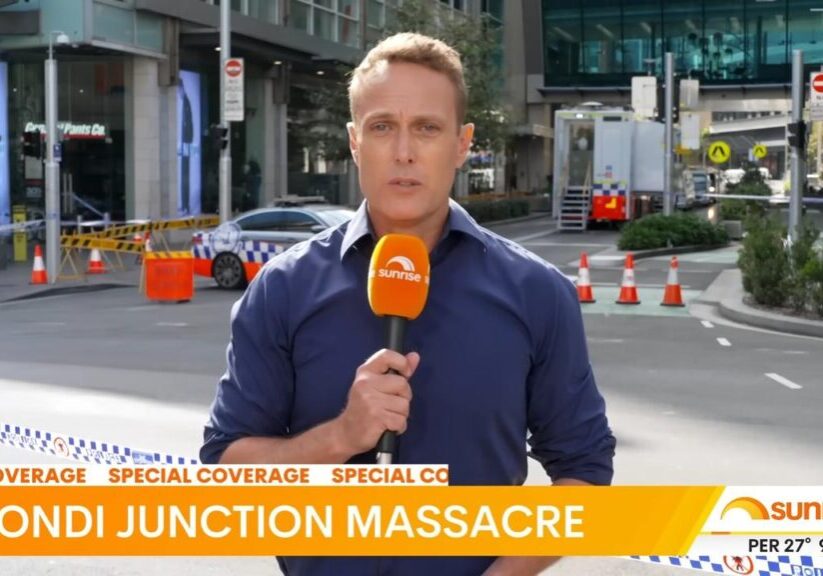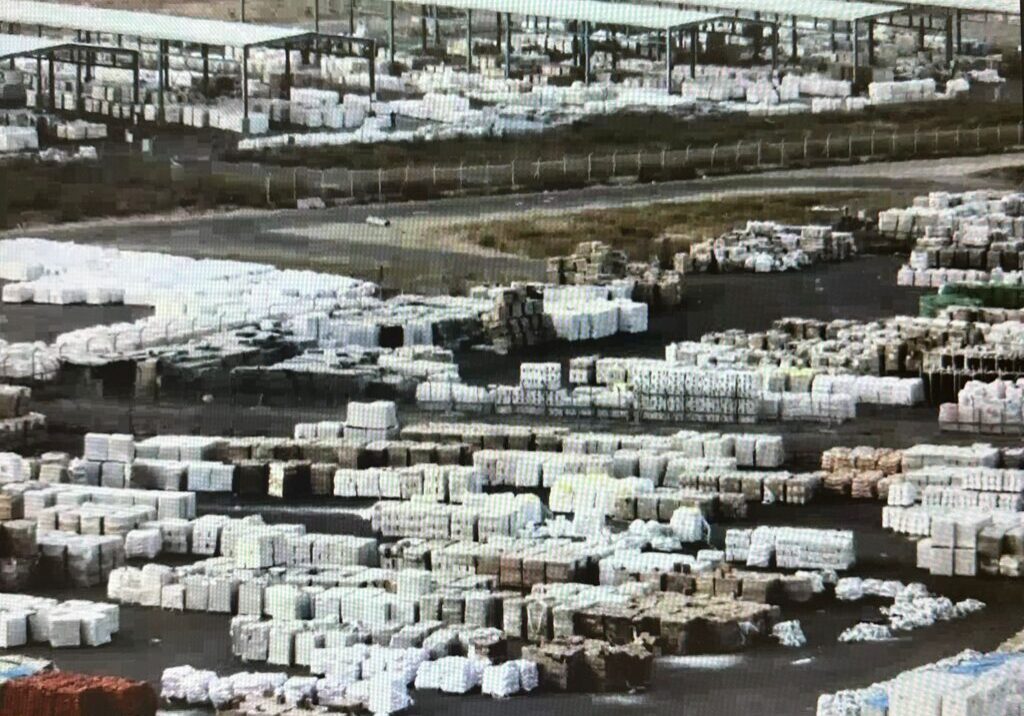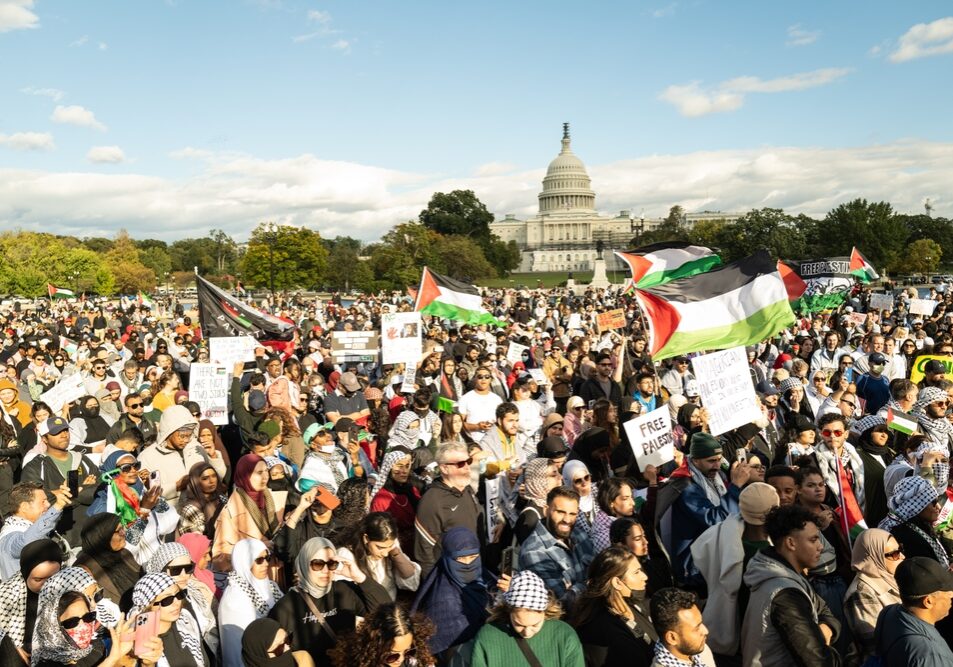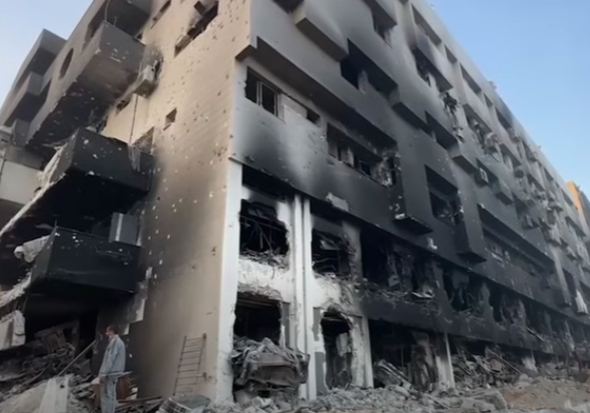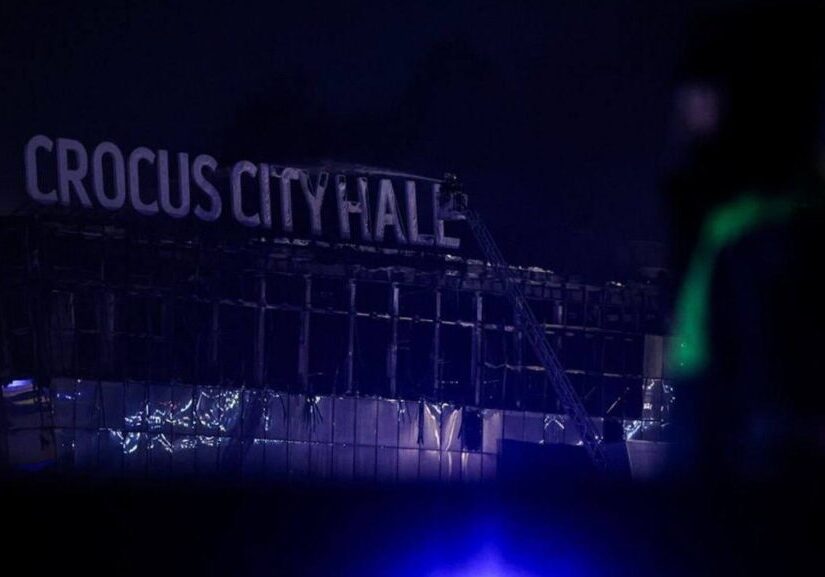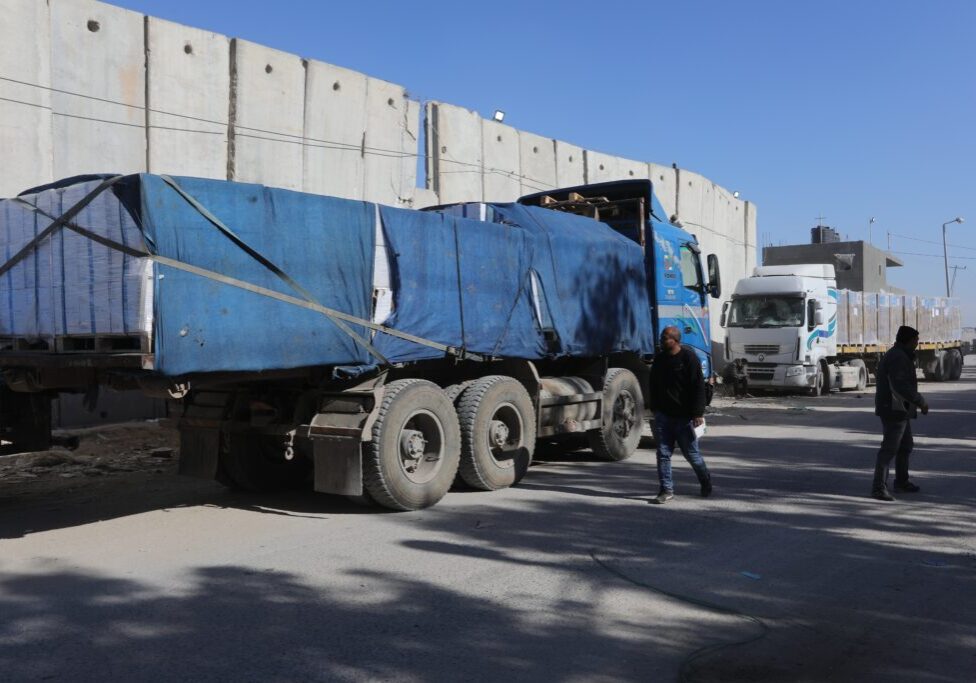FRESH AIR
UPDATES
McNeill twists story about Egyptian border with Gaza to blame Israel
Jun 17, 2016 | Allon Lee
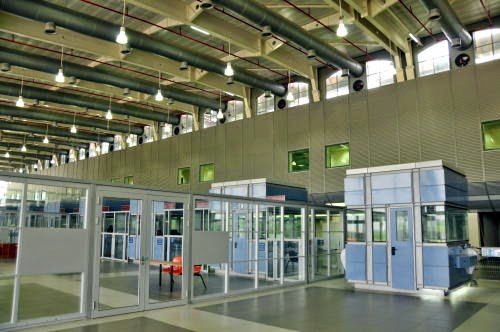
It’s been a while, but ABC TV “7.30” on Wednesday witnessed the full-blown reappearance of Sophie McNeill the advocacy journalist, in a story entitled “Rafah border crossing opens to sick Gazans seeking medical treatment in Egypt.”
The whole story was shallow and contradictory – and it was clear neither McNeill nor the show’s producers were going to allow the facts to interfere with a narrative they wanted to tell. Despite the fact that the story was ostensibly about a rare opening by the Egyptian government of its shared border with Hamas-ruled Gaza, that theme was that the suffering in Gaza is Israel’s fault and nobody else’s – not Egypt’s, not Hamas’ and not the Palestinian Authority’s. A veneer of balance was offered by speaking to an Israeli spokesperson, but the slant of the story was very clear.
The fix started with another embarrassing lead in from host Leigh Sales who said:
The nearly two million people living on the Gaza Strip have had to get their heads around rarely being able to leave their country. The borders are all but closed and that means it’s almost impossible for anybody to get out, even for a family reunion or urgent medical treatment.
Sales should be peeved that she has once again been let down by her writers when introducing a McNeill report. Last October, Sales was ridiculed for an introduction that stated two Palestinians were shot “after they tried to board a school bus.” The pair were terrorists who boarded the bus and then stabbed a man.
In this latest example of ineptitude, as the story itself admits, it is certainly not “almost impossible” for Palestinians to enter Israel seeking medical treatment – nor indeed is “almost impossible for anybody to get out”.
In fact according to statistics provided by Gisha – a left-wing Israeli NGO whose sole purpose is to oppose any restrictions on the freedom of movement for Gazans – no less than 13,945 Palestinian patients and their carers have crossed from Gaza into Israel for medical treatment in the first five months of 2016 alone. Moreover, 72,108 Gazans in total have crossed into Israel over the same period – a majority of them merchants or businessmen.
The story itself led off with vision and sound of Palestinians at the Rafah crossing who want to cross into Egypt for medical and other reasons and are experiencing long waits and uncertainty. McNeill mentions the Egyptian restrictions then says:
Israel has maintained a blockade on Gaza for nearly 10 years to punish the hardline militant group Hamas which controls the strip and regularly fires rockets across the border into Israel.
Blockaded, not because Hamas was responsible in the 1990s for suicide bombings throughout Israel, even while the peace process was in its early stages, and again in the early 2000s during the so-called Second Intifada. Not because Hamas uses vital aid to construct tunnels into Israelis territory with the intention or launching terror attacks or to kidnap Israelis back to Gaza as bargaining chips. Not because Hamas’ charter dating back to 1988 calls for the elimination of Israel and is saturated with sickening antisemitism and not because Hamas regularly calls for Israel’s destruction as an act of both religious and nationalist obligation and openly trains Gaza’s children to use weapons to attack Israel.
Let’s also forget the recent deaths of four Israelis in Tel Aviv when two Palestinian brothers affiliated with Hamas entered Israel from the West Bank.
No, let’s forget Israel’s obligations to protect its citizens from an actively hostile government – the border is closed, only so it can “punish” Hamas out of a presumed desire for vengeance and damn the consequences to ordinary Palestinians in Gaza.
Following this statement came the bait and switch, with McNeill jumping from the Rafah crossing with Egypt into speaking with Israeli spokesperson Adam Avidan of the IDF Civil Affairs Unit, treating it as obvious that Israel is responsible for the inability of Palestinians to enter Egypt, the subject of the story up to that point.
After Avidan speaks briefly, she then cites the sad case of a women named Eman who claims she was unable to get permission to enter Israel to receive treatment for thyroid cancer, and is now seeking to go to Turkey via Egypt for her treatment. McNeill then announces:
The World Health Organisation says 30 per cent of patients who apply to Israel to leave for medical treatment are not given permission to exit.
In other words, 70% of requests made by Palestinians wanting to cross into Israel on medical grounds are actually approved – contradicting directly Leigh Sales’ claim in the introduction that it is “almost impossible” for Palestinians to enter Israel seeking medical treatment! (In fact looking at WHO figures, from January 2015 till July 2015, Israel approved over 80 per cent of requests and since then approval rates have ranged from between 70 and 80 per cent. It is hardly surprising there has been a drop in permission, considering the rise in terror attacks by Palestinians in the second half of the year.)
And who might the other “30%” be? Well, according to the New York Times last August, there is a roaring trade in Gaza for fake medical certificates by people wanting to leave. The article quoted Dr. Bassem al-Badri, who runs Gaza’s medical-referral office, admitting that “‘about 10 percent’ of applicants did not actually need treatment.”
Could perhaps some of those refused be using the fake certificates?
And let’s also remember that there is a fairly extensive medical system in Gaza, equal to or better than the medical system in most Middle Eastern countries, with hospitals able to treat all but the most severe or unusual illnesses. It is not obvious that everyone who wants to be treated in Israel or abroad cannot be treated in Gaza – surely some Gaza patients would apply to be treated in Israel even if they don’t really need to.
And then there’s the security argument. There are at least 20 documented cases where the transfer of patients to Israel was used as cover to attempt terror attacks – perhaps the most infamous incident was the case of Wafa Samir Ibrahim al-Biss, who tried to smuggle a bomb into the hospital where she was being treated for severe burns to kill those who were helping her. Should Israel let in people who it suspects are only trying to use their visits for terrorist purposes?
But where’s the drama if it’s a good news story, where, despite the state of war between Israel and Hamas, the former is showing compassion, while Egypt, which lets through Palestinians much less frequently than Israel does, is apparently not.
The message imparted by McNeill was, if Israel does not allow through every single Palestinian who wants to enter its borders, then it is heartless.
But let’s keep going, because there was more.
In case McNeill’s poison pill didn’t register with viewers, she followed it up with a twist of the knife, introducing a supposed impartial expert, in the form of Robert Piper, UN Humanitarian Coordinator of Gaza.
According to Piper:
Our focus really is on that Israeli border and on the imposition of a blockade on Gaza. That’s where we believe the focus should be. Rafah’s not a substitute. The sense of collective punishment that represents the blockade on Gaza is perhaps for me the most disturbing that all Gazans are being punished as a consequence of the actions of a few.
Piper, the obligatory UN official based in Gaza, is always publicly ready to hold Israel and only Israel responsible for all of Gaza’s problems. Perhaps this is out of conviction, but it should not be forgotten that such a focus makes it much easier to operate in a territory ruled by religious gangsters whose word is law and who have a habit of storing weapons in UN-run schools (see here), intimidating or expelling journalists who say things they don’t like, and seizing UN aid when it suits their purposes.
Piper probably is aware that Israel accedes to most requests for safe passage on medical grounds, but still could not, or would not, tear himself away from the prepared anti-Israel script.
But one shouldn’t be too surprised by Piper who has form in terms of engaging in refusing to acknowledge any reality other than one amenable to Hamas – to the extent that he even denied in May there was any proof that UN aid was being diverted by Hamas to build terror tunnels. This was weeks after his UN colleague, Nickolay Mladenov, the UN’s special coordinator for the Middle East peace process, effectively admitted in April that such diversions were going on. Even his own boss Ban Ki-Moon expressed alarm in January at Hamas’ pledge to keep building tunnels.
Why did McNeill not ask Piper why the UN only looks at the Israeli border and ignores Egypt? Why no demands or UN General Assembly resolutions insisting that Egypt open the border up?
Does Piper expect Israel, which is in a state of war with Hamas, to allow through whomever wants to transit? And if so, why doesn’t Egypt also have to do so?
Avidan was allowed to give a sentence or two of context about Hamas – and McNeill also quoted Gaza resident Mohammed Abdullah who, McNeill said, “lays the blame for the situation in Gaza not just on Israel and Egypt, but also on the Palestinian leadership of Fatah and Hamas.”
But why didn’t we hear from either a Hamas or especially an Egyptian government official since the subject of the story was supposedly the Rafah crossing? Or if they wouldn’t speak to McNeill, why weren’t viewers told this – you can be sure if the Israelis refused to speak to her she would have made that very pointedly clear in her report.
Or if she couldn’t get an Egyptian official, why not an independent expert asked to discuss reasons for the Egyptian-Gaza border always being closed? This was a state of affairs that, contrary to McNeill’s assertion in the report that it only developed “since President Abdel Fattah el-Sisi took control in 2013”, largely existed even under the Muslim Brotherhood President Mohamed Morsi’s short rule in 2011/12. Viewers might have learnt that Morsi implemented strict closures to punish Hamas for allowing Islamist terrorists in the Sinai Peninsula to use Gaza to launch a series of deadly attacks in the Sinai in 2012. (Four years later, those ties are even stronger. See here.)
Is there an explanation for this blackout on vital context?
Yes there is.
Like a magician revealing her secrets, McNeill shared her playbook in 2011, during an interview with ANU academic Victoria Mason, her former professor.
McNeill said that the journalism she wanted to do was to frame stories from the point of view of the people who are “really suffering” in a situation. Both the examples she then offered referred to Palestinians.
The real story for McNeill, the golden thread in her reporting since she got the ABC gig, has been the promotion of the view that Palestinian violence and the suffering they endure are the bitter fruit of Israel’s occupation.
This was encapsulated perfectly on ABC Radio National “Saturday Extra” (Oct. 24, 2015) when she remonstrated with top Israeli analyst Jonathan Spyer’s assertion that the current outbreak of violence was directly linked to a “falsehood” that the Temple Mount status quo is threatened.
She said, “Israelis can’t go into most parts of the West Bank where the angriest young Palestinians are and I can…and they mention al-Aqsa but it’s really the occupation that they’re complaining about.”
Tellingly, this preconception about the occupation made its way onto the “7.30” web page where this McNeill report was hosted, which described Gaza as “occupied territory.” Never mind that Israel withdrew completely from Gaza in 2005, and the territory definitely does not meet the definition under relevant international treaty law for “occupation”, which requires effective control on the ground.
McNeill could so easily also have shown footage of the enormous state-of-the art facility Israel built at the Erez border crossing since 2005 to process thousands of Palestinians wanting to enter the Jewish state but which only handles a trickle.
Moreover, she could have reported on Egypt’s destruction of thousands of homes in Rafah on its side of the border and the displacement of more than 3200 Palestinian families in its attempt to stop Hamas’ weapons smuggling through tunnels.
But what viewers got was what one expects by now from McNeill, a classic example of her tilting the playing field so that the story is always “Palestinians are suffering and its Israel’s fault” – even if Egypt’s closure of its border with Gaza is the subject of the story.
The reality is that in the absence of a combination of a sleight of hand which turned the story away from Egypt and onto Israel, and an attempt to report selectively and remove inconvenient context, this narrative would not have been credible. And in the world of Sophie McNeill, taxpayer-funded advocacy journalist, you can’t have that.
– Allon Lee
Tags: Egypt

